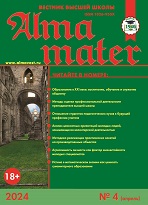Rolak Irina
Ph.D, Assistant Professor
The Jan Kochanovski University in Kielce,
Poland
Research interests: economic discourse, Business Russian teaching, translation
E-mail: irene41@rambler.ru
Presented is activity approach to training in Russian language of business contacts, incl. it’s communicative and cognitive components, co-existing in interconnection and co-dependence as two undividable aspects.
Key words: communication, cognition, Russian language of business contacts, education.
References
1. Gudkov, D.B. Theory and practice of intercultural communication. — M., 2003.
2. Karasik, V.I. Linguistic Circle: Personality, Concepts, Discourse. — M., 2004.
3. Kashkin, V.B. Introduction to communication. — Voronezh, 2000.
4. Kostomarov, V.G., Mitrofanova, О.D. Methodological guide for teachers of Russian as a foreign language. — M., 1984. — P. 41—42.
5. Mitrofanova, О.D., Kostomarov, V.G., Methods of teaching Russian as a foreign language. — M., 1990.
6. Pivonova, N.E. Oral and written types of communication. — SPb., 2005.
7. Farisenkova, L.V. Levels of communicative competence in theory and practice. — M., 2000.
8. Chernichkina, E.K. Linguistic aspects of learning communicative behavior // Language, communication and social environment. — Voronezh, 2007. — P. 174—182.
9. Shchukin, A.N. Methods of teaching Russian as a foreign language. — M., 2003.
10. Dakowska, M. Psycholinguistic basics for teaching of foreign languages. — Warsawa, 2001.
11. [URL]: http://www.scribd.com/doc/17287531/200603
12. [URL]: http://www.bc.ore.edu.pl/Content/35/Dwujezyczne_polska.pdf











.png)






